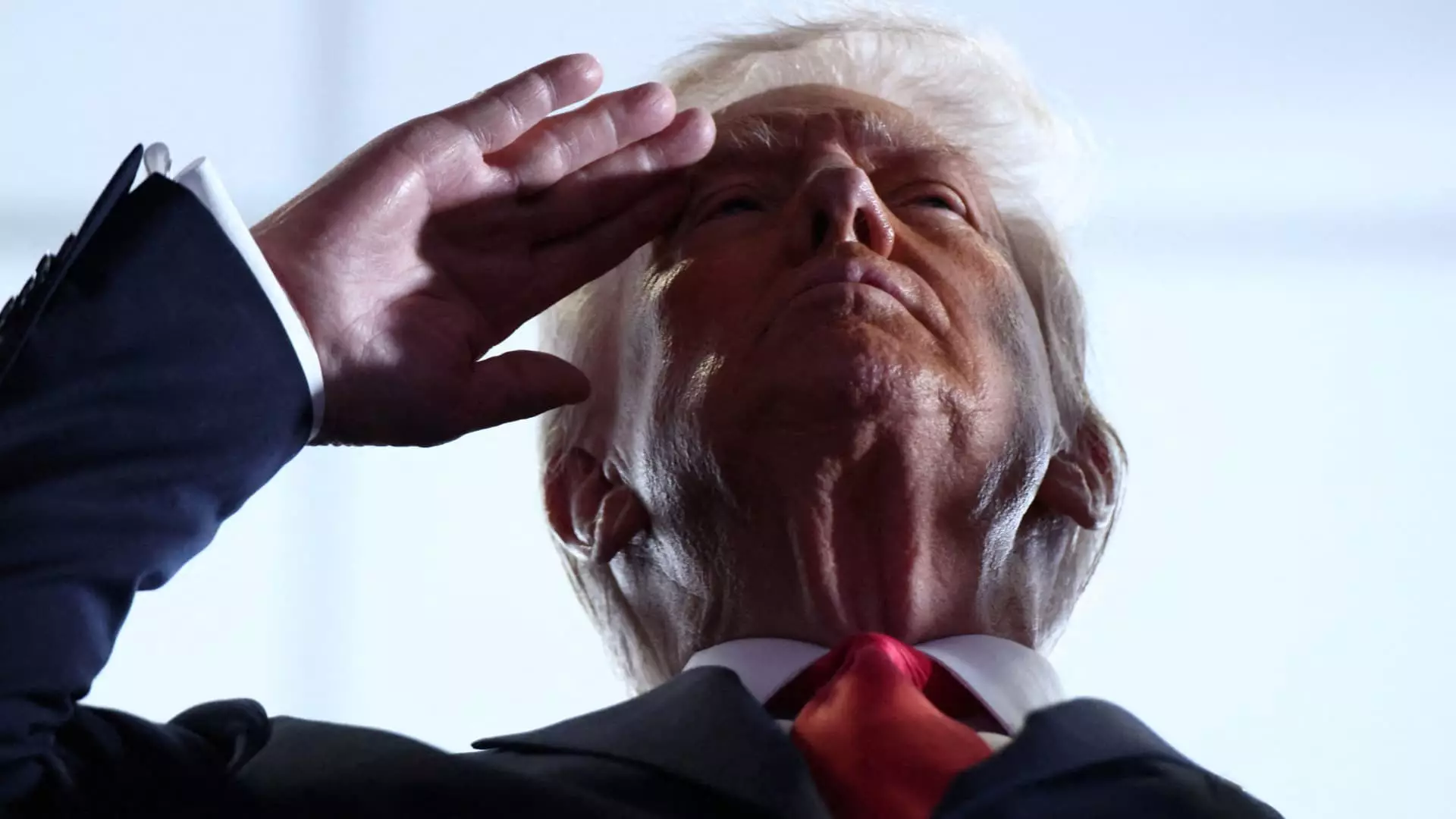In the realm of American politics, approval ratings serve as vital indicators of public sentiment towards a leader’s performance. Recently, President Donald Trump garnered notable approval at the beginning of his second term, showcasing a complex interplay of public perception, enacted policies, and lingering concerns about economic conditions.
According to a CBS News/YouGov poll, 53% of surveyed U.S. adults expressed approval of Trump’s job performance thus far in his second term. This figure marks a significant boost from previous ratings, suggesting that the swift actions taken by Trump immediately after his inauguration have resonated well with a substantial segment of the population. The survey highlighted a number of adjectives that respondents associated with Trump, including “effective,” “tough,” and “focused.” However, the term “compassionate” only resonated with 37%, indicating a perceived gap in his emotional connection with voters.
The poll, which involved 2,175 respondents and maintained a margin of error of 2.5 percentage points, reflects a promising outlook for Trump compared to his initial term, where support was considerably more divided. As he embarks on his new tenure, the president seems to have cultivated a focused base that appreciates his energetic approach and strong promises delivered during the 2024 campaign.
Despite the favorable approval ratings, the survey results expose significant skepticism regarding Trump’s economic policies, which were instrumental to his campaign. Specifically, a majority of respondents—51%—believe that Trump’s policies will exacerbate grocery and food prices. While addressing inflation and cost of living was pivotal during his first campaign, the current sentiments suggest a troubled economic landscape, where 66% feel that the administration is neglecting the critical issue of rising prices.
Furthermore, public opinion appears to heavily criticize the effectiveness of new tariffs implemented on various countries, including Canada and China. A staggering 73% of participants think that tariffs will increase prices for consumers, while a mere 8% hold the belief that they will facilitate lower prices. This skepticism also extends to the anticipated creation of jobs through tariffs; responses indicate a nearly even split, with equal percentages believing tariffs could either increase unemployment or have no effect at all.
Amidst economic apprehensions, Trump has found support in some of the more controversial aspects of his domestic policy. A significant 59% approval rating was reported for his initiatives concerning immigration, particularly regarding the proposed deportation of undocumented individuals. Trump’s decision to potentially deploy troops to deter illegal border crossings further earned a 64% backing, embodying the perceived urgency many Americans feel regarding border security.
However, not all policies have garnered applause. Trump’s decision to issue pardons related to the January 6 Capitol riots faced pushback, with 58% of respondents opposing these actions. This division illustrates the continuing polarization surrounding Trump’s leadership style and decisions, highlighting how deeply entrenched political lines can influence public opinion.
Trump’s handling of international matters, notably the conflict between Israel and Hamas, remains divisive, achieving a narrow 54% approval. This reflects the significant ideological chasms dividing the electorate, with Democrats and liberals predominantly opposing his foreign policy stances.
The survey also illuminated mixed feelings towards the proposed “Department of Government Efficiency,” led by business mogul Elon Musk. While some respondents showed support for cutting government expenditures and assertively dismantling diversity and equity programs, the nuanced opinions on this initiative reflect the ongoing discourse around the government’s role in society.
Overall, Trump’s early ratings in his second term portray a leader buoyed by strong support in certain policy areas, yet challenged by economic uncertainties and controversial decisions. As he moves forward, the task will be to bridge the growing divide between his supporters and detractors. Capturing hearts and minds amidst a complex political landscape will require balancing bold action with the responsiveness Americans expect from their leadership.

Leave a Reply